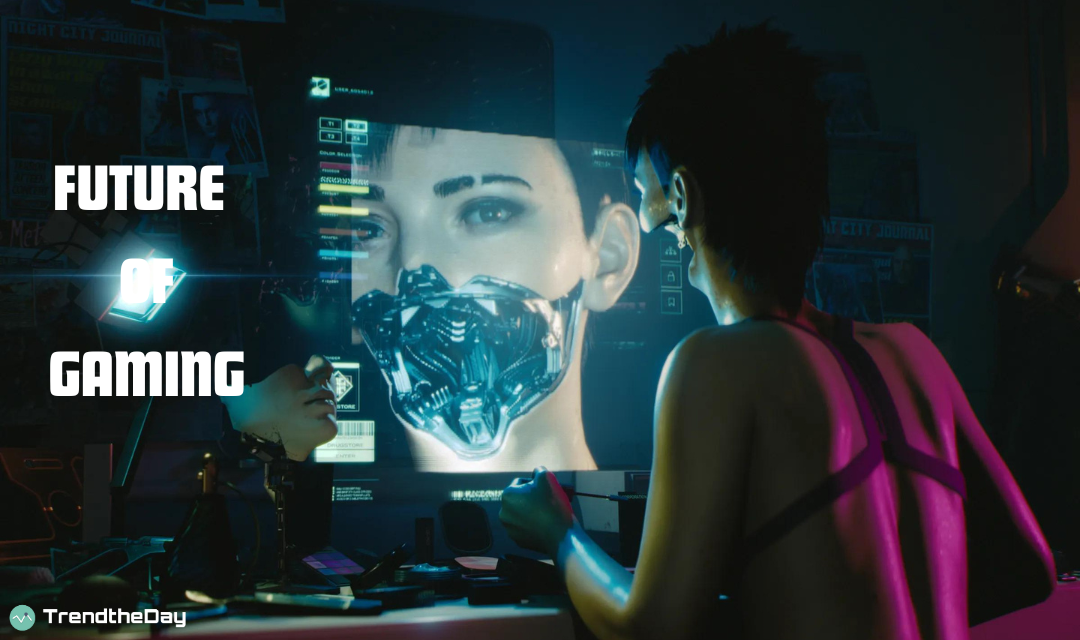Gaming is one of the most popular and profitable forms of entertainment in the world. According to Statista, the global gaming market was valued at $178.3 billion in 2020 and is expected to reach $268.8 billion by 2025. However, gaming is not just a passive activity; it is also a creative and social one. Gamers want to immerse themselves in rich and realistic virtual worlds, interact with other players and characters, and express their individuality and creativity. This is where artificial intelligence-AI and AR Metaverse in gaming come in.
AI is the technology that enables machines to perform tasks that normally require human intelligence, such as learning, reasoning, and decision making. AI has been transforming the gaming industry for decades, enhancing gameplay, generating content, and personalizing experiences. The metaverse is a collective virtual shared space, merging physical and digital realities. It is a space where individuals can interact, work, play, and create in a fully immersive digital environment. The metaverse is not a single game or platform; it is an interconnected network of virtual worlds that offer endless possibilities.

AI and the metaverse are the future of gaming because they can provide gamers with unprecedented levels of immersion, interactivity, and innovation. Here are some of the ways that AI and AR metaverse in gaming can revolutionize gaming:
- AI-driven NPCs: Non-playable characters (NPCs) are characters in games that are controlled by the computer or game rules. AI-driven NPCs can exhibit lifelike behaviors and adapt to the player’s actions, making gaming experiences more engaging and challenging. For example, in Cyberpunk 2077, NPCs have their own daily routines, personalities, and reactions to the player’s choices.
- Procedural content generation: AI algorithms can generate vast and diverse game worlds, quests, and environments based on rules or parameters. This not only reduces the workload for game developers but also ensures that no two gaming experiences are the same. Players can explore ever-expanding virtual universes, each brimming with surprises. For example, in No Man’s Sky, every planet, creature, and star is procedurally generated by AI.
- Personalized gaming experiences: AI-driven recommendation systems can analyze player preferences and habits to tailor gaming experiences. From suggesting the next game to play to adapting in-game challenges based on skill levels, AI ensures that every gamer has a unique and enjoyable journey. For example, in Netflix’s Bandersnatch, viewers can choose their own adventure by making decisions that affect the outcome of the story.
- AI-powered metaverse: AI is the backbone of the metaverse, making this ambitious concept possible. AI algorithms manage everything from simulating realistic physics and rendering lifelike graphics to moderating user-generated content and facilitating social interactions. The metaverse is not just a playground; it is also a bustling digital economy. Cryptocurrencies and blockchain technology enable users to buy virtual assets, trade digital goods, and even earn a real income within the metaverse.
- Redefining work and education: As the metaverse matures and AI-driven technologies advance, traditional concepts of work and education may undergo radical transformations. Remote work and digital learning could become the norm, transcending geographical boundaries. The metaverse could also offer new opportunities for collaboration, innovation, and creativity across various domains. For example, in Spatial, users can create and share 3D models, presentations, and designs with their colleagues or classmates in a virtual workspace.

AI and the metaverse are not just trends; they are the next frontier of gaming. They have the potential to create immersive, interactive, and innovative gaming experiences that could redefine our reality. As gamers, we should be excited about what lies ahead in this new dimension of entertainment.
To know more about :
https://techwireasia.com/2023/08/how-can-the-combination-of-game-and-ai-revive-the-metaverse/
1. Financial Hurdles:
Developing AI technology for gaming can be a costly endeavor. Advanced AI systems often require significant investment in research, development, and infrastructure. For smaller game studios or independent developers, these expenses can act as a major barrier to entry. Consequently, they may struggle to compete with larger, more financially robust companies in harnessing the potential of AI in their games.
2. Technical Complexity:
Integrating AI into video games is a technically intricate process. Game developers need specialized expertise to design AI systems that enhance gameplay without causing technical issues like compatibility problems with different platforms, scalability concerns as games grow, and ensuring smooth game performance. This complexity can make AI integration a challenging task, requiring significant time and resources.
3. Ethical Considerations:
The introduction of AI into gaming brings with it ethical responsibilities. Game developers must be vigilant to ensure that AI-powered games do not perpetuate harmful stereotypes, promote negative behaviors, or inadvertently encourage discrimination or bias. Additionally, safeguarding player privacy and the security of their personal data is paramount.
4. Addressing Addiction:
AI algorithms can make games more immersive and captivating, which can lead players to spend excessive amounts of time playing. Developers must strike a balance between creating engaging experiences and preventing gaming addiction. They need to take proactive steps to ensure that players don’t become overly absorbed in the game to the detriment of other aspects of their lives. Providing mechanisms for players to manage their gaming habits, such as setting time limits or offering in-game reminders, is a responsibility that developers must shoulder to promote responsible gaming.

In summary, while AI holds the potential to revolutionize the gaming industry, developers must navigate these challenges to ensure that AI-powered games are not only technically sound but also ethically responsible and mindful of players’ well-being. Balancing innovation with responsibility is key to harnessing the full potential of AI in gaming.
To know more about AR Metaverse :
https://trendtheday.com/metaverse-the-future-of-social-media/
